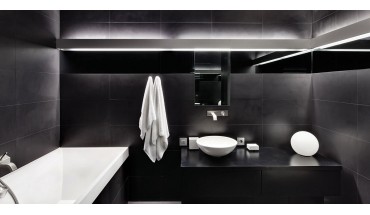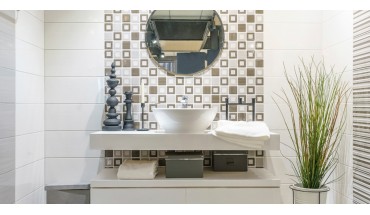
Granite sinks are among the oldest variety used in many homes. Stone is one of the earliest known construction materials. It has always proved to be a practical choice for household sinks. This partly explains why many homeowners choose stone over other materials for sink purposes. However, stainless steel has also been widely used as a fitting alternative to granite. Here are the differences between the two types of sinks.
Pros of Granite Sinks
You get a naturally beautiful kitchen when you use granite for the sinks. It reflects both a traditional and contemporary look for your home. Granite sinks blend easily with various architectural styles. The material is available in a virtually unlimited selection of colors, unlike steel. This makes it easier to achieve whatever color effects you desire for your kitchen. Granite is highly durable. Once installed, the sinks will last for ages. This adds to your home value.
Cons of Granite Sinks
Granite is only available in a rectangular shape, unlike stainless steel which gives more variety. It is more expensive to install a granite sink than the stainless steel variety. Granite is a heavy material. It's vital that an adequate support structure is installed to sustain the sink. This may not be to your liking, especially if you prefer space underneath the sink. The support material also adds to your overall costs. Granite is susceptible to stains, unlike stainless steel. You need to apply some sealant regularly to control stains. Although granite is generally durable, should chipping occur, you will be compelled to seal the gap with some appropriate filler materials. Over time, this will reduce the resilience of your sink. Another disadvantage of these sinks is that breakages are likely to occur if dishes or other delicate crockery is dropped into the sink.
Pros of Stainless Steel Sinks
Stainless steel sinks are the most affordable option for sink needs. They also make durable sinks. Once installed, especially the thicker gauges, the sink can last several years. Stainless steel does not break, crack, or dent easily. When well maintained, a stainless steel sink will keep its shiny look for a long time. Stainless steel sinks have low maintenance requirements, unlike granite. They do not stain or tarnish. You get more flexibility with stainless steel in terms of shape. It is available in rectangular, round, or contoured shapes.
Cons of Stainless Steel Sinks
If you select stainless steel of a thinner gauge, the sink may not last as long as one with a thicker gauge. Thinner gauges dent easily and are more prone to scratches. They also have higher maintenance needs than the thicker gauge. Although the thicker gauge is more durable, it is also more expensive. If you prefer to have more color in the kitchen, a stainless steel sink will disappoint because of the limited color variety. Granite offers a virtually unlimited color range to choose from.















